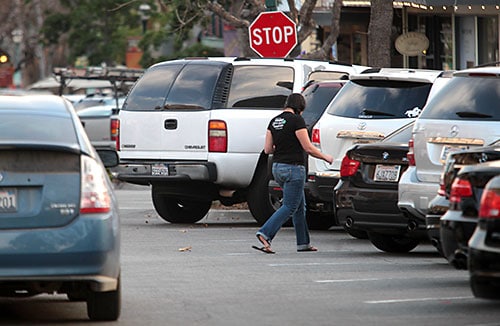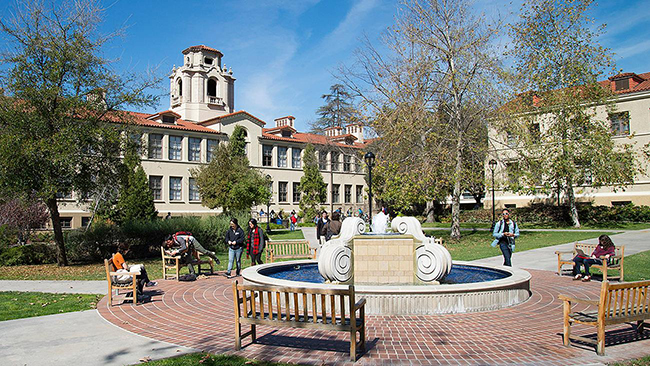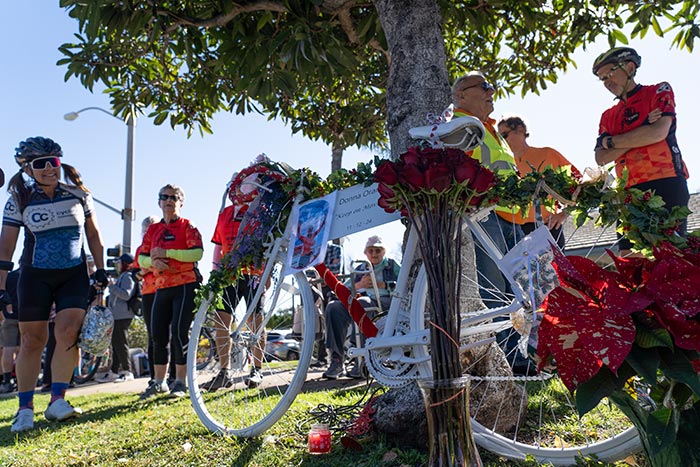City staff looks into paid parking program for Claremont Village

Claremont city staff is exploring the possibility of instituting paid parking in the Village.
The proposal was set forth by the city at the October 22 Future Financial Opportunities Committee in a presentation by City Manager Tara Schultz and Assistant City Manager Colin Tudor. The presentation to the committee highlights that it could generate around $3 million a year for the city.
The city says the plan is in response to complaints about parking congestion in the Village. The future Gold Line parking structure, which is intended for paid parking for transit customers, is also a factor. It is yet to be seen how the recent announcement of construction delays from the Gold Line Construction Authority will impact the paid parking proposal.
According to a release from the city, an essential component of the plan is to gather input from residents, businesses and organizations. Along with a paid parking system, the city is also looking at a possible subsidy program with the ride-share app Lyft and the future proliferation 
Ms. Schultz stressed that the plan is in the beginning stages, and still needs to get more feedback from community groups such as the Claremont Chamber of Commerce, as well as the commissions and eventually the city council. Through that process, elements of the proposal could change, she said.
“We’re really, really early in the process,” she said.
According to the agenda packet from the October 22 meeting, city staff first looked into the idea in 2016, but backed off due to the high costs of implementing such a program. Two years later, the ubiquity of smart phones has allowed Claremont to look into an app-based payment system, where Claremonters and visitors can pay for their parking spot with a touch of their phone, the city said.
The system currently looks like this: parking in public lots, streets and the parking structure would be regulated through “pay by plate,” from 10 a.m. to 11:59 p.m. Tuesday through Sunday. This would affect 1,446 spaces in the Village, the city said.
Signs would be installed to alert drivers of the system, which they could pay for via smart phone. If someone doesn’t have a smart phone, they can pay at one of four kiosks located outside city hall, the parking structure, the Claremont Depot and the Laemmle Plaza.
The initial payment proposal is $3 every two hours for non-residents and $1 per hour after that, and $2 every two hours for Claremont residents, plus 50 cents per hour afterward. Each payment plan would go up to four hours.
The city estimates, based on the amount of parking space turnover and how many passes could be purchased, that it could generate anywhere from $2.9 million to $3.3 million annually. This could potentially make it the fourth-highest revenue source for the city.
Ms. Schultz told the COURIER that a part of that revenue would go back into the Village in the form of capital improvements, maintenance and the creation of trash enclosures.
“I think its really important that if this program goes in place, whatever it turns out to be, we should be setting aside a portion of that money to go ahead and reinvest back into the Village,” she said.
As stated in the city’s proposal to the FFOC, revenue generated from a paid parking program will create a funding source for maintenance and improvements in the Village, and to offset the city’s contribution to the Landscape and Lighting District tax from the general fund.
Staff proposes 15 percent of parking revenue go to maintenance like pressure washing, repainting of light poles and holiday décor and signage replacement. About 10 percent annually would be set aside for capital improvements such as sidewalk repair, irrigation system modernization and new landscaping, as well as resurfacing of parking lots.
Ms. Schultz noted that in addition to the FFOC meeting, the plan was presented to the Village Marketing Group (VMG), where “we got some really good feedback.”
But not everyone in Claremont is on board.
For Marnie Clarke, the owner of the Cheese Cave on Yale Avenue, the idea of paid parking concerns her. Her shop relies heavily on quick trips and pick-ups, and paid parking could hurt that part of her business.
“If I had a 20-minute parking spot, that would be really great for pick-ups like that,” Ms. Clarke said. “But if it was a metered spot, I don’t know if people would then come in to get a $6 grab-and-go sandwich and then have to pay parking for it.”
She understands the congestion problem, and has heard from customers about how hard it can be to park in the Village. Some customers have told her they have to circle the area multiple times before they find a place to park.
But she’s worried that a paid parking system could result in customers coming into the Village once a week, rather than multiple times a week.
“If people are wanting to stop in and grab a quick piece of cheese and a bottle of wine, if they had to pay for parking, they’ll have to choose somewhere else where they don’t have to do that,” Ms. Clarke said.
Ms. Schultz said the issue of short-term parking came up during the meeting with VMG, and said the city would consider the idea of creating more 20-minute parking spots or having a 10- to 20-minute grace period for short-term parkers.
On the neighborhood app NextDoor, the reaction to the proposal has been mostly negative. A Change.org petition against the proposal from a group named Transparent Claremont had gathered more than 230 signatures as of Thursday afternoon.
“Setting parking fees, once again, burdens the residents of Claremont with fees to engage with the downtown area, under the guise of future parking problems,” the petition reads. “It is nothing more than an identified revenue stream in the range of $3 million annually. We demand fiscal accountability rather than additional revenue from the residents of Claremont.”
City spokesperson Bevin Handel said she has read the criticisms on NextDoor, but cautioned that they are running on premature information. The city plans to use the feedback to help them craft a better proposal in the future, she said.
“We’re actually encouraging the negative [feedback] because they get us to the place we need to be later on,” she said.
A community survey will be posted by the city after the Thanksgiving holiday.
—Matthew Bramlett
news@claremont-courier.com










0 Comments